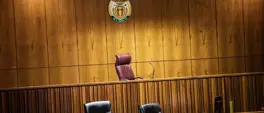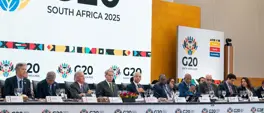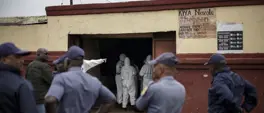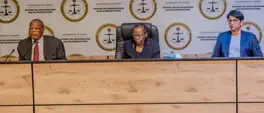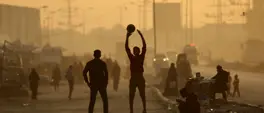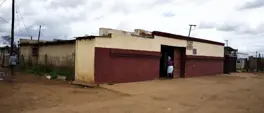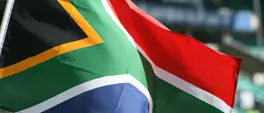MALAIKA MAHLATSI: Why losing Gauteng would devastate the ANC
Malaika Mahlatsi
21 February 2024 | 17:12The recent SOPA was particularly important because it comes just three months before the general election that will decide the fate of the ANC. The general election has been scheduled for 29 May.
OPINION
On the 19th of February, Gauteng premier Panyaza Lesufi delivered his second State of the Province Address (SOPA) at the Nasrec Expo Centre in Johannesburg. The SOPA, which was unsatisfactory both in delivery and content, is the last of the current administration.
While it outlined some of the successes, challenges and plans of the Gauteng Provincial Government under an administration led by the African National Congress (ANC), Lesufi’s address was largely a regurgitation of previous SOPAs, with a sprinkling of new ideas.
On one hand, this reflects the principle of continuity that is needed in a South African government where politicians are often more invested in individual glory and personal legacies than in progression.
On the other hand, it reflects the dearth of ideas on how to govern a complex and dynamic province like Gauteng. The latter is evidenced by the stagnation in longstanding commitments such as the development of tourism in the Sedibeng District Municipality and the creation of an aerotropolis in the City of Ekurhuleni.
The achievements that Lesufi highlighted about the latter development are not new – they occurred at least five years ago. It begs the question of why further progress is happening at such a glacial pace.
Furthermore, instead of massive infrastructure development in Sedibeng, which is a requirement for investment and certainly for tourism, the region has been in a chronic state of deterioration both in terms of infrastructure and governance.
The situation has been so bad that just two years ago the Emfuleni Local Municipality, located within the said district, had its bank account attached by a creditor for outstanding debt.
What is certainly new is the spirited focus on crime – an issue that was a central point of the SOPA.
But given the crime bloodbath that South Africa in general and the Gauteng province, in particular, is facing, as evidenced by the third quarter crime statistics released by the police minister just a week ago, it stands to reason that crime fighting and prevention is Lesufi’s key priority.
And no doubt, the residents of Gauteng, who have been terrorised by criminals, will welcome the interventions proposed if they are implemented.
The recent SOPA was particularly important because it comes just three months before the general election that will decide the fate of the ANC. The general election has been scheduled for 29 May.
The ANC has been haemorrhaging support for several years and is facing its toughest electoral battle since the dawn of democracy. It is tethering on the brink of losing the provinces of KwaZulu Natal and Gauteng, where opposition parties have made significant inroads.
The loss of Gauteng in particular would be extremely devastating for the party.
For one thing, the province has historically been an ANC stronghold owing to its rich history as the epicentre of the struggle against apartheid. It was in Gauteng that in 1955, the Congress of the People constituted the most representative gathering in the history of South Africa, the outcome of which would be the foundational document of our liberation, one that outlined the aspirational principles of freedom and democracy in our country – the Freedom Charter.
It was in Gauteng that both the Treason Trial and the Rivonia Trial took place – in Johannesburg and Pretoria, respectively. It was in Gauteng that the seeds of the armed struggle were planted following the Sharpeville Massacre.
The history of the ANC cannot be told outside Gauteng, for it was in this province that so much of what shaped the armed struggle and the ANC as an organisation happened. The loss of Gauteng would be psychologically bruising for the party, whose headquarters are in the heart of the Johannesburg central business district.
Another reason that the loss of Gauteng would be devastating to the ANC is that as the nerve centre of the regional economy, the province is an important vehicle to drive the party’s policies.
According to Statistics SA, the Gauteng Province accounts for 33.1% of the country’s GDP.
The province’s economy is larger than the economies of KwaZulu-Natal and the Western Cape combined. Lesufi keyed in on this, asserting that if Gauteng were an independent country, its economy would be the third largest in Africa, behind only Egypt and Nigeria.
While its economy in the past was anchored on the mining sector, the economy of Gauteng has since evolved and transitioned significantly from being primarily industry-based to being knowledge-based. This transition has happened not only due to the evolution of the global economy but also due to the deliberate policies of the ANC-led government.
The result is that Gauteng is the financial, logistics, transport, e-commerce and technological epicentre of South Africa. Losing this province would be devastating to the ANC because nowhere can the economic policies of a government be better practically demonstrated than in Gauteng.
Losing the province also means a complete loss of hegemony and a significant decrease in political influence in the affairs of the South African state. Gauteng is the seat of many critical institutions that shape the politics of the region and continent. These include the Pan-African Parliament, a legislative body of the African Union, as well as the headquarters of many critical multinational organisations and companies.
The party that governs the Gauteng province wields political influence not only in policies and legislative frameworks that impact these institutions but also as a stakeholder in them as a mandated representative of the province's people, who constitute a quarter of South Africa’s total population.
Having won Gauteng by less than a percentage point in the previous general election, and with unfavourable developments that have transpired since then, it seems more likely than not that the ANC will not retain the Gauteng province without a coalition arrangement.
These developments include but are not limited to load shedding, soaring crime levels, a cost of living crisis, deteriorating public infrastructure and the infuriating corruption that occurred at the height of the COVID-19 pandemic - in which several provincial departments were implicated in the looting of resources intended for fighting the said global emergency.
One of the culprits was the Department of Education which, at the time, was under the leadership of Lesufi.
The prevailing political climate in Gauteng doesn’t augur well for the ANC and the lukewarm SOPA did nothing to position the party as having a sustainable programme to turn the situation of Gauteng around.
Listening to Lesufi, I didn’t hear a convincing story. I did hear an interesting phrase that he repeated numerous times: “The sunrise will not find us where the sunset left us.”
Indeed, the sun that set on an ANC that once enjoyed hegemonic power in Gauteng is likely to rise where the ANC is a footnote in the province’s future.
Malaika is a geographer and researcher at the Institute for Pan African Thought and Conversation. She is a PhD candidate at the University of Bayreuth in Germany.
Get the whole picture 💡
Take a look at the topic timeline for all related articles.


